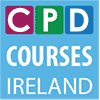Teaching Courses and Qualifications
For those interested in teaching as a career and who may be researching teaching courses in Ireland, the options will depend largely on the type and level of education you will be involved with: primary/secondary, adult education, train the trainer and TEFL are some of the options we will be looking at in this piece.
There are a number of requirements in place for becoming a primary teacher. As of this moment the Irish language requirement for primary teaching is for teachers to be able to teach the Irish language having achieved honours at leaving cert level. Presently there are two routes of entry into primary education: an undergraduate degree or a two-year postgraduate Professional Master of Education (PME).
While the points can change from year to year depending on the demand, there is rarely a huge jump from one year to the next. Along with the points requirement there are minimum entry requirements of the core subjects: Maths, English and Irish. This is to make sure that primary teachers have the capacity to oversee learning in these areas.
As in many countries, teaching in the secondary school system in Ireland requires a bachelor’s degree and at least a basic teaching credential.
There are both on-campus and distance learning options available to qualify as a teacher in Ireland.
St Angela´s, Dublin City University and Mary Immaculate College Limerick are some of the main colleges that offer a qualification in teaching in Ireland and are some of the more popular degree choices while Hibernia College offers students a chance to study by distance learning.
St Angela’s College comes under the umbrella of The National University of Eire (NUI). NUI colleges normally require applicants to all courses to meet a three-language requirement, Irish (unless they have grounds to be exempted), English, and another language. Applicants to Trinity on the other hand have a requirement of only two languages; English and another language. From 2007, all St Angela’s programmes requires a NUI matriculation requirement .
St Angela´s also offers a degree for teaching Home Ecomomics, with Home Economics Teacher Education maintaining its popularity among applicants the College works to meet this demand on a national level. This five-year course will see graduates complete a BA, which is then followed by a Master of Education (PME). Graduates, who complete this degree will also be qualified to teach in a second elective subject (Biology, Religious Education or Gaeilge).
In September 2019, St Angela´s launched a BA in HE specializing in the three core disciples of Home Economics; Food Studies; Textiles, Fashion and Design; Family Resource Management.
Graduates of this BA will become Home Economists and can acquire the talents and knowledge to find employment within the Community in the health and well-being sector, as well as the Food/Beverage Sectors as product developers and food advisors. Graduates of this BA can also explore teaching, through further postgraduate studies at NUI Galway.
Applicants to primary teaching courses also have the degree option at Mary Immaculate College, Limerick – Bachelor of Education and Psychology. This four- year degree course results in a qualification as a primary teacher, with the addition of psychology to degree level.
Hibernia College (distance learning) The flexible nature of the primary and post primary teaching courses allows you to choose where you study. It is not a requirement to possess prior teaching experience to be eligible for the education courses. The blended model is a good option for people who want to attain their qualifications without sacrificing their current job positions or commitments. Hibernian College offers:
A Masters in Post Primary Education – Professional Master of Education for qualifying as a teacher of teenagers aged 12-18. If you have an enthusiasm for certain subjects, this is a good consideration as passing on this enthusiasm to the student is key as this level for allowing them to foster a relationship with the material they are learning.
Masters in Primary Education
The Professional Master of Education in Primary Education is for if you want to work with children aged 4-12. Working with younger children is for those people, who understand that teaching can be challenging but also extremely rewarding. Teachers in Primary Education play an integral role in child devleopment as they are incremental in the formation of the moral and social character of the child as well as the intellectual development.
The DCU degree programme is a BsC in Education and Training. Three years and full time, this degree is not for entry into primary or post-primary teaching instead it is created for those who wish to develop knowledge and skills in the field of education and training, theory and practice, and who want a career in teaching/training in adult, further or continuing education or in public sector training. Applications can be made by CAO from school-leavers and also applicants who hold specific FETAC awards. Applicants with previous experience working in adult and community education and training, or holders of DCU’s Adult Foundation Certificate can apply directly to the university.
SNA Special Needs Assistant Courses
There are also a multitude of Special Needs Assistant courses to choose from. This is a growing area of need and will continue to offer employment to suitably qualified individuals. People considering SNA as a career should consider the discipline that the job involves and the level of care with approach needed to the people being taught. There are courses in special needs available throughout Ireland such as the onsite courses in Childcare and Special Needs Assistant training by Dunboyne College of Further Education in Co. Meath and Killester College of Further Education in Dublin. For a blended learning experience which offers both onsite and online learning Progressive College Dublin offers
a QQI Level 5 and 6 Special needs assisted Blended Online Course over 20 evenings. And lastly Chevron Training offers the QQ1 level 5 and 6 Special Needs Assistant course through distance learning.
Train the Trainer Courses
Another option we will look at are the train the trainer courses to equip people with the necessary skills to deliver these programmes. There is a QQI level 6 course offered by a number of further education providers throughout the country.
Some of the skills attained during the course will be:
- The Analysis of the need for training
- Setting and defining the objectives of a training programme
- Designing programmes which answer the unique needs of a variety of clients
- Selecting the type of content that can engage the listener
- Gaining an understanding of the role of the trainer
- Facilitation skills
- Self and course evaluation and using evaluation as an improvement tool.
This course provides the skills and qualification to work as a trainer or tutor in private institutes and CPD providers, it generally leads to opportunities in the adult education sector and is a valuable asset for any professional considering becoming a trainer in a professional capacity.
TEFL Courses
For ESL (English as a Second Language) teaching positions, aspiring teachers need to hold a standard TEFL certificate, minimally requiring 120 hours of training. You are recommended to have a TEFL certificate to teach English as a foreign language in Ireland.
For more information on teaching courses and qualifications in Ireland check out some education, teaching and training courses on Findacourse.ie

